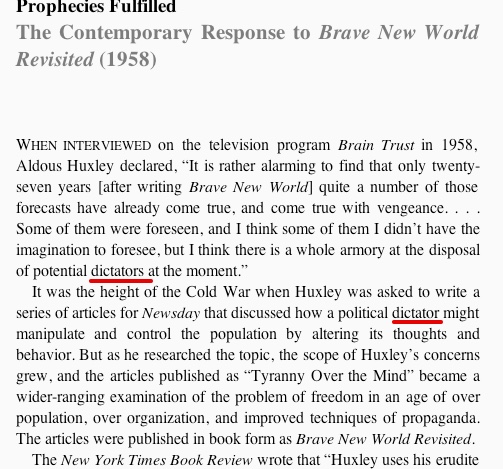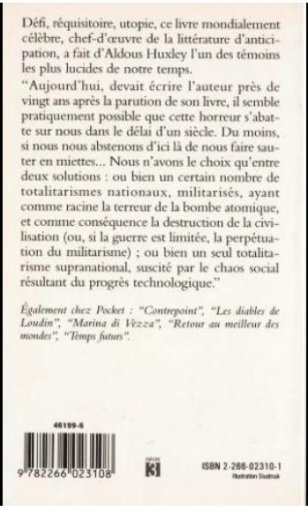Jean-François
New Member
Hi,
In my research work, I often see the following quite, attributed to Aldous Huxley in his seminal SciFi book Brave New World.
But you won't find it there. You won't find it in any of his books. So the mystery remains.
On a French forum I read someone making the hypothesis that this text could come from the back cover of Brave New World. A text that would summarize Huxley's theme. But it remains a hypothesis.
I would love to see this one debunked. I also asked the same question in Quora here.
I guess this thread has some intersection with this one "Huxley & Faabian Society"
In my research work, I often see the following quite, attributed to Aldous Huxley in his seminal SciFi book Brave New World.
"The perfect dictatorship would have the appearance of democracy, a prison without walls in which the prisoners would not dream of escape. A system of slavery where, through consumption and entertainment, slaves would love their servitude."
But you won't find it there. You won't find it in any of his books. So the mystery remains.
On a French forum I read someone making the hypothesis that this text could come from the back cover of Brave New World. A text that would summarize Huxley's theme. But it remains a hypothesis.
I would love to see this one debunked. I also asked the same question in Quora here.
I guess this thread has some intersection with this one "Huxley & Faabian Society"
Last edited by a moderator:


